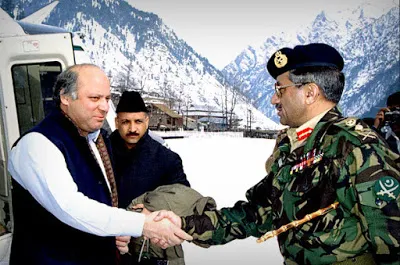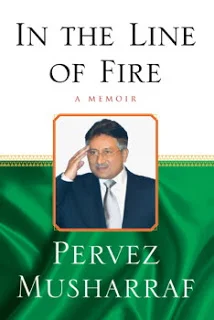By Ramya PS The world took notice when Pakistan’s Foreign Minister Zulfikar Ali Bhutto in 1965 said “If India had the atom bomb, we...
By Ramya PS
The world took notice when Pakistan’s Foreign Minister Zulfikar Ali Bhutto in 1965 said “If India had the atom bomb, we would get one too, even if we had to eat grass.”[i] By 1975 when Bhutto became Prime Minister he told a French weekly Le Nouvel Observateu that “We are more sensible nowadays.”[ii] However, taking into account how Bhutto’s civilian leadership shaped Pakistan’s nuclear programme reflects the firm hand leaders have played in shaping Pakistan’s history. Interestingly, Bhutto was one of the few civilian leaders who had such an impact on Pakistan’s history as it has been dominated by Pakistan’s military, specifically the Army. This was seen in how Pakistan’s first military leader Ayub Khan with the ‘devolution of power’ established the basis of military rule in the South-Asian nation. His often quoted statement “If India went nuclear we would buy a nuclear weapon off the shelf somewhere”[iii] -this statement to a large extent reflects the inherent thinking and ideology of the Pakistani Army.
Considering the long spurts of Army rule in Pakistan the decision makers within this institutional and its leaders become crucial. Zia-ul-Haq even to this day has been cited in molding Pakistan’s Afghanistan and US policy following the Soviet intervention of Afghanistan in 1979. His rule which lasted for a decade (1977-1988) is seen as a period during which the Pakistan Army became a ‘religious army’ wherein Islam was institutionalized into its fabric. The current organizational disposition of the Pakistani Army is Islamic. It emphasizes on iman (the belief that Allah is the only God and Muhammad was his last prophet), taqwa (fear of Allah, righteousness and good conduct) and jihad-fi-sabilillah (fight in the cause of Allah).[iv] Therefore, the leadership of Ayub, Zia has had an overwhelming influence in shaping the contemporary politics in Pakistan. Therefore, the overwhelming power of the military specifically the Army has been crucial in shaping the nation-state of Pakistan. In the modern context, the influence of the Army can be analyzed in the leadership of General Pervez Musharraf. In examining this claim, General Pervez Musharraf, as the former Army Chief and President of Pakistan, provides a significant exemplary. In this view, the present study examines General Musharraf’s decision making during the Kargil conflict followed by the 1999 coup- to assess the “leadership quotient” in Pakistan.
What makes Musharraf and his rule of Pakistan is his distinct decision making character- heightened ambition, high risk-taking behavior and as with many leaders in higher echelons of power, Musharraf ensured he surrounded himself with those loyal to him.[v] It is these characteristics that become emphasized in understanding the planning and execution of the Kargil operation. Primarily the Kargil operation is believed to be an act of secrecy. A large amount of literature by Hassan Abbas[vi], Owen Bennet[vii], etc. indicate the secrecy between the ‘Gang of four’ comprising of the General Musharraf, Lieutenant General Mohammad Aziz (CGS), Lieutenant General Mahmud Ahmed (10 Corps Commander) and Major General Javed Hassan (FCNA). The element of secrecy was seen as essential to the overall success of the operation. The Gang of four is important in understanding the Kargil operation because it depicts how the entire decision-making process was limited to these individuals and more significantly the power was concentrated in Musharraf’s position within the group. The previously identified traits in General Musharraf’s personality are reflected in how the Gang of Four functioned. Also, the junior level officers specifically Major General Javed Hassan was given the duty to implement the operation without keeping the higher level officers in the loop. This depicts how the Gang consisted of individuals who were keen on improving their own position of power and climb the professional ladder. Therefore, power games were played even within the group. This, in turn, would increase the control and power of General Musharraf as the Gang would be more loyal to him. This is seen in how the Lt. Gen Aziz and Lt. Gen Ahmed carried out the coup in 1999 in Musharraf’s absence. Although, a post-facto assessment the ambition, risk-taking behavior and need for loyalty can be analyzed from the behavior of Musharraf through the Gang of four.
It is noteworthy that a similar military operation was presented to former Army Chief Zia-ul-Haq who turned it down. Therefore, the risks involved in carrying out such an operation against India was considered dangerous, signaling a war- seen as unfeasible by Zia. Therefore, it becomes pertinent to probe certain key questions: first, what distinguished the 1999 Kargil operation of Pakistan. Second, why did the risks not dissuade the "Gang of Four"? Some literature indicates that the nuclear equation in 1999 led Pakistan (specifically the Gang of Four) to think that India would not retaliate. Pakistan’s explosion of the nuclear bomb signaled that it has offset India’s conventional superiority. This was seen as a significant difference between the Kargil operation and the one proposed to Zia. This, however, does not explain how all four planners who have been trained in military strategy miscalculated the Indian response.[viii] Certain reports have emerged claiming that although Pakistan has tested the nuclear bomb there was no operational capability. How then did he go ahead with the Kargil operation? Was a change in status-quo on the Kashmir issue the sole objective of the Kargil operation as some claim? This is where the argument that the gang of four played their own power politics come to the forefront. Although changing the status quo on Kashmir was seen as a plausible goal, the secrecy of the gang of four indicates that personal ambition trumped the goal. Therefore, the second question how the gang was not dissuaded can perhaps be answered by the simple but, complex concept of the need for power and ambition.

Map Attribute: Mangla Cantonment / Source: Google Maps
Musharraf prior to becoming the Chief of Army Staff was Corps Commander of the Rawalpindi Corps based in Mangla. This to a certain extent throws light on how Musharraf was closely associated with the events at the Line of Control with India and the possible motivations behind the planning of such an operation with Lt. General Mahmud Ahmed. In his autobiography ‘In the Line of Fire’ Musharraf maintains that being posted to Mangla and command the elite Corps 10 of the Pakistan Army made him an integral part of the apex decision-making body- the Corps Commanders Conference. His participation in this apex body confirmed his belief that Pakistan has a failing political class and all roads led to the ‘GHQ’ to seek solutions. Musharraf’s low opinion of the political class is a reoccurring theme throughout the book. The belief that the Chief of the Army should be consulted on all matters concerning the nation-state of Pakistan coupled with ‘misrule by politicians’ provides a basis to understand how Musharraf was possibly motivated with the Kargil Operation and refrained from keeping the political leadership in the loop. Furthermore, the secrecy within the gang of four suggests individual level motivations and power games were at play. Through the Kargil operation Musharraf could retain his position as COAS and by placing the onus of the Kargil operation on the political class he could gain legitimacy from the domestic public. This behavior in the decision-making process indicates the traits of ambition and risk-taking behavior in Musharraf’s leadership. This could be one explanation as to why the four officers continued with a high risk operation.
Musharraf’s stance on the Kargil Operation and the reasons behind it include accusing India of taking the first step and initiating a ‘defensive’ response from Pakistan, he also maintains that India weakened its position by bringing in four divisions into the Kargil area which was held by the ‘freedom fighters’. This weakened India’s position Musharraf claims and emphasizes how it is an achievement. Musharraf’s claim depicts that in case of a war with India; Pakistan had the advantage and could have counter-attacked, had the politicians not intervened. The entire narrative that Musharraf built around the Kargil operation, the motivations behind it and the emphasis on how it could have been a military victory had the political class led by Prime Minister Nawaz Sharif not given in to international pressure all indicate his core traits. These traits include a strong belief that Pakistan’s Army is highly superior and must, therefore, run the nation as opposed to the civilian regime, the prominence he places on the COAS position indicates his ambition to not only lead the army but, the nation as well and the high risk (Kargil Operation) he was willing to take.
Another dimension to understanding Musharraf’s personality lies in assessing the close timing between in the Kargil imbroglio and the 1999 coup which led Musharraf to take control of the political decision making in Pakistan along with controlling the military. Analysis of the events of the Kargil Operation and the following coup of 1999 the assessment that personal level ambition and power politics were the core motivations behind the entire decision-making process. One could argue that the 1999 coup was an internal change that resulted from the Kargil operation. This reinstates the argument that the military officers could not be dissuaded from high-risk operations to gain political control. This brings back the notion of the ‘superiority of the Army’ over the political class. This belief coupled with ambition not only could have motivated General Musharraf but, led to the coup. In some sense, the Kargil Operation legitimized the coup and the need for Musharraf to take control over the ‘incapable’ Sharif who gave in to international pressure.
Image Attribute: FEB 1999 - Nawaz Sharif and General Pervez Musharraf in Kail, POK
Musharraf maintains that he only responded to PM Sharif’s attempts to ouster him. However, the appointments of his loyalists to significant positions such as appointing Brigadier Salahuddin Satti as commander to the 111 Brigade, in charge of Prime Minister’s Security and ordering the military intelligence to track Sharif’s movements indicate pre-planning. Musharraf also appeared to have prepared for a possible response to Sharif’s attempts to oust him. Therefore, when the news of Ziauddin becoming COAS was announced, Musharraf’s loyalists Ahmed and Aziz fell into swift action. Ahmed, Commander of Rawalpindi Corps entered the PM’s house and took Sharif into custody. The DGMO, Shahid Aziz ordered the Triple One Brigade to seal the house of the President and the Prime Minister. Orders were issued to deny Ziauddin access into the General Headquarters (GHQ) and the Fourth Corps Command of Lahore was ordered to detain the governor of Punjab. The swiftness with which the coup was carried out indicated how the decision-making process was centralized by Musharraf through the appointment of loyalists. It also shows a certain level of anticipation and preparation. Hence, while analyzing the decision making of the Kargil Operation one needs to pay attention to the 1999 coup as it throws light on how decisions were carried out by the Gang of four despite the high risks involved in the operation.
Given the outcome of the Kargil operation and the resulting 1999 coup, some have argued that Musharraf could have planned that Kargil to oust Sharif.[ix] Moreover, the blame Musharraf placed on PM Sharif and the political class is not new. Historically, the Army has been accused of not being held accountable for its failures as seen in the case of the 1971 war. Following the loss of 1971, the Army was not held accountable properly by Zulfikar Bhutto who rather took steps to prevent military rule. Furthermore, the civilian authority established by Bhutto, in turn, created space for Army rule to return. A similar pattern is seen when steps were taken by Sharif to amend the constitution and become the supreme head of Pakistan during his second stint at power. Musharraf led the coup to counter Sharif’s influence and reinstated Army rule as did Zia-ul-Haq.
ISBN: 9780743283441
Throughout Musharraf’s defense of the Kargil operation and the ensuing coup of 1999 his ambition and risk-taking behavior comes to the forefront. Going further, his rule of Pakistan between 1999 and 2008 indicates how militaristic tendencies are superimposed on governing the nation. The formation of the National Security Council by Musharraf not only strengthened his hold on power but, also ensured that Pakistan’s Army became an all-powerful organization that could actively protect its interests and not just be instrumental in policy formulation. Furthermore, Musharraf’s hold from power began waning following his support for the Global War on Terror. This, in turn, has thrown open several debates on the state of terrorism within Pakistan and its future course of policy on sponsoring terrorism. The lack of support Musharraf had within the Corps Commanders Conference following his decision to support the US in its war against terror indicates that although Musharraf sought to retain his stronghold in Pakistan he overstepped his own belief that the Army cannot be controlled by a singular leader. Although, a high-risk strategy in Kargil led to a desirable outcome of the 1999 coup for Musharraf the risk of supporting the US became a major contention within the ruling elite. Musharraf maintains that Pakistan did not have a choice but, to support the US which is apparent in his memoir. However, Musharraf’s explicit overruling of the Corps Commander’s decision and supporting the US became his folly. Musharraf stated that “It is not unusual in Pakistan for the general public and the intelligentsia to approach the army chief and ask him to save the nation. In all crises, everyone sees Pakistan’s army as the country’s savior.”[x] However, his own ambition to control the larger institution of the Army led to his ouster from power.
About the Author:
REFERENCE:
[i] Samina Ahmed, “Franco-Pakistan Relations-II: The Issue Of The Nuclear Reprocessing Plant”, Pakistan Horizon (Pakistan Institute of International Affairs: Karachi, 1978), v. 31, n. 1, p. 36, see http://www.jstor.org/stable/41393344, accessed on 29 April 2014.
[ii] Ibid.
[iii] Bhumitra Chakma, “Road to Chagai: Pakistan's Nuclear Programme, Its Sources and Motivations”, Modern Asian Studies (Cambridge University Press: London, 2002), v. 36, n. 4, pp. 878-879, see http://www.jstor.org/stable/3876477, accessed on 2 May 2014.
[iv] Ashok K. Behuria and Sumita Kumar, “The Army of Pakistan: Dominant by Default”, in Vishal Chandra (ed.), India’s Neighbourhood: The Armies of South Asia (Pentagon Press: New Delhi, 2013), pp. 151-152
[v] This trait of ‘bolstering’ has been witnessed throughout Musharraf’s rule and specifically witnessed in the Kargil Operation and the 1999 Coup. However, during the later years, the lack of bolstering coupled with self-preservation led to his ouster. Details on the concept of bolstering refer to Graham Allison and Philip Zelikow, Essence of Decision: Explaining the Cuban Missile Crisis (Addison Wesley Publishers: USA, 1999), p. 283.
[vi] Hassan Abbas, Pakistan’s Drift into Extremism: Allah, the Army and America’s War on Terror (Pentagon Press: New Delhi, 2005).
[vii] Owen Bennett Jones, Pakistan: Eye of the Storm (Yale University Press: USA, 2002).
[viii] Given the training of the military officers involved it becomes difficult to believe that the gang of four especially Musharraf miscalculated India’s response. Musharraf maintains that the Kargil Operation was not an offensive operation and was similar to the fait accompli India pursued with regard to the occupation of Siachen in 1984. Therefore, the risk was high and the payoff was gaining territory in Kashmir. This seems straightforward but, the operation resulted in Pakistan occupying more than 800 sq. km of Indian Territory resulting in a firm response from India. As Peter Lavoy states perhaps Musharraf bit off more than he could chew and the secrecy which was intended to make the operation succeed resulted in its failure. This pegs the question that the agenda behind Kargil Operation could have been more than the Kashmir issue and remains a grey area.
[ix] How far this is true is questionable. Given the background of Army rule in Pakistan did Musharraf have to take the Kargil route to oust Sharif?
[x] Pervez Musharraf, In the Line of Fire- A Memoir (Simon and Shuster: UK, 2006), p. 166.








.jpg)












